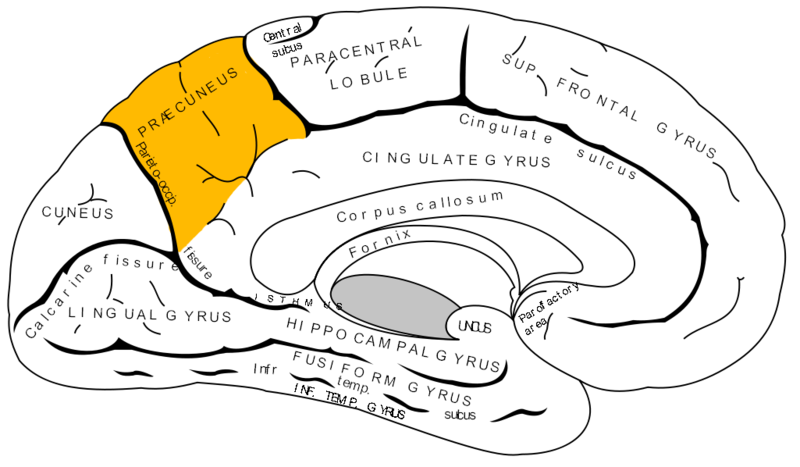Do You Feel Loki? Hypnosis, Brainwashing, and The Avengers


Original illustration by Emilie Majarian for The Mary Sue.
“‘You have heart.’ Loki points the head of his spear at Barton’s head. Barton’s eyes suddenly glow BLACK. The ability to control Barton’s mind is now in Loki’s hand.”
One of the first few scenes in The Avengers involves Clint “Hawkeye” Barton, Dr. Eric Selvig, and unnamed-beefy-S.H.I.E.L.D.-agent coming under the hypnotic thrall of Loki, puny god of mischief. The scene is first of many that make reference to hypnosis and brainwashing–some based on reality, and some pure Hollywood trope. Stereotypes and misconceptions of hypnosis and brainwashing pervade not just movies, but public discourse and even scientific communities. But happily and maybe unexpectedly, Whedon got a couple big things right.
Mind control stereotypes in the Avengers
In movies, subjects can be hypnotized at the snap of the fingers, completely lose their willpower, and be coerced into doing horrible things against their very natures. They can be brainwashed into becoming zombies and sleeper agents. So many of these myths persist because they’re compelling and feed into the vestiges of Cold War-era spy and mind control paranoia that still play into modern filmmaking. They’re also part of our cultural knowledge; if we see a protagonist with expressionless, glassy eyes doing something out of character, we immediately recognize that they’ve been hypnotized or brainwashed. And ultimately, brainwashing and hypnosis is seen as the domain of the heart, with the love of a family member or “a good woman” pulling people back into their own minds.
We see these stereotypes in The Avengers, even though Whedon’s script seemed to make an attempt to combat them. The idea of hypnosis and brainwashing as emotional surrender is a persisting stereotype, which pointing the spear at the chest seems to reference. And while Hawkeye and Selvig never went “full zombie” like you see in other movies, their glassy blue eyes and sweaty, sallow skin certainly hinted at it (I guess the brainwashed never eat, sleep or wash their faces). But Whedon’s heart… mind… was in the right place with a script that gave us a head-pointing spear and cognitive recalibration via blunt force trauma.
Hypnosis and brainwashing
The process of hypnosis involves a hypnotist taking a subject through a multi-stage process to elicit a relaxed psychological state. In this hypnotic state, subjects are more prone to suggestion but ultimately retain control over their behavior. Patients in this suggestible state can be “unconvinced” of their woes and cravings, which makes it a good treatment for chronic pain, anxiety, and addiction. While hypnosis is still used as a therapeutic tool to “uncover” suppressed childhood trauma to prepare for psychotherapy, there is potential for implanting or reinforcing false memories when it’s used in this way. And of course, it’s still used in nightclub acts where hypnotists make participants cluck like chickens (why always chickens?).
In a real-life hypnotic state, suggestions by the hypnotist are so convincing that they can override what a subject is feeling. What seems like involuntary or coerced behavior is the result of the hypnotist providing a suggestion that becomes a subject’s new reality. For example, if a hypnotized subject is convinced through imagery that their limbs are heavy, they might believe it difficult or impossible to move them. This surrender to suggestion is part of what makes hypnosis a great pain reliever but a terrible aid for legal testimony.
However, the subject still needs to be a willing participant to be hypnotizable. This is not the case with brainwashing, where the brainwashing agent first has to forcibly break the target’s identity. Cults, prison camps during war, and totalitarian regimes employ various techniques to attack the target’s belief system and self-image. After that, the brainwashing agent gets the target to trust or rely on them. Once the brainwashing agent has gained the trust, reliance, or dependence of the target, they can supply the target with a new reality, similar to what happens during hypnosis (see the specific steps here). Ultimately, both brainwashing and hypnosis are temporary states, with hypnosis possibly having more long term effects if it’s used as therapy.
The end result of Loki’s spear-pointing is a state very similar to real-life hypnosis. Hawkeye and Selvig carry out Loki’s comments without question, coming under his control while still retaining their personalities and interests. This suggests that they have simply bought into the reality presented by Loki, much like a subject can buy into the suggestion that they’re getting very very sleepy.
Where hypnosis lives
Like all psychological phenomena, hypnosis and brainwashing “live” in the brain. While there is some discussion over the type of activity in each region and how it feeds into specific behavior, the general consensus is that the frontal lobes (including the prefrontal cortex) and an area in the parietal lobe called the precuneus are involved in hypnosis.

Sagittal cross-section of the brain.
The frontal lobes are responsible for a set of behaviors known as “executive function”, which includes planning, attention, and memory for facts and processes. One idea known as dissociated control theory suggests that the frontal lobes are inhibited during hypnosis, effectively giving up the driver’s seat to the hypnotist. However, imaging studies of this area have shown decreased OR increased activity during hypnosis. There is no definitive explanation for why this occurs; one theory is that the hypnotized subject shows increased activity in the frontal lobe because they need extra processing to follow the hypnotist’s instructions. The precuneus is a region in the middle of the parietal lobe, which has connections to the prefrontal cortex. While evidence about its function is still being uncovered, its role in consciousness makes it a prime candidate for some involvement in hypnosis.
Whedon did good
Overall, Whedon did a pretty good job presenting hypnosis in a Hollywood film. He got the gist of how hypnotists suggest a new reality to their subjects, that subjects don’t lose their identities, and at least in his original script, that hypnosis is the domain of the mind. The stereotypical elements that needed to stay in to be recognized as hypnosis by Western audiences were there, sure – the glassy blue eyes, the terrible skin, the heart-pointing – but not enough to completely invalidate the fact that he got the core representation of hypnosis pretty close to reality. Thumbs up, guy.
Bonus: Identity and hypnotizability
Unlike the mind-controlled automatons of old horror movies, Hawkeye and Selvig were able to retain memories of people close to them and even build deus ex machina failsafes into their tesseract portals.Selvig was still nerdy and excited about the tesseract and Hawkeye still knew Fury well enough to tell he was stalling. This suggests that they were able to retain their identities, and Loki’s spell can be better compared to real-life hypnosis than brainwashing. But where does that leave the rest of the team? Let’s say Loki had actually succeeded in hypnotizing Tony Stark – what would have happened then? What if he’d tried it on Black Widow, a perennial double agent highly familiar with brainwashing techniques?
Of course we’ll never know, but indulging in a bit of fan-fic, with my special Hypno-Loki scale of 1-10 for hypnotizability via magic spear (1-least, 10-most), here are my guesses:
- Selvig: Since he was able to shake off the hypnosis well enough for science and comprehensive engineering, I’d rate him a 7 on the Hypno-Loki scale.
- Hawkeye: He was caught, hook, line, and sinker. 10 on the Hypno-Loki scale.
- Iron Man: We know that in context of the film, this would have never worked thanks to the Arc Reactor blocking access to his heart. But if we were to fast forward post-Iron Man 3 when he’d be more vulnerable, I’d guess that there’d be a great internal battle for realities, since Tony listens to none but himself. 6 on the Hypno-Loki scale.
- Black Widow: I honestly doubt she’d be very hypnotizable. But seeing as this is fantasy hypnosis that apparently works on everyone, I think she’d remain a double agent even when hypnotized. 3 on the Hypno-Loki scale.
- Bruce Banner: This is a tough one. On one hand, super genius who does what he wants. On the other hand, kind of a lonely dude looking for a friend. 9 on the Hypno-Loki scale.
- Captain America: This is a sad one. Ever a soldier, Cap would be all Loki’s. 10 on the Hypno-Loki scale.
- Thor: Being that it’s Loki wielding the spear and he’s already manipulated him countless times, I’d say he doesn’t have a chance. 10 on Hypno-Loki scale.
- Bonus – Scarlet Witch: Oh this one would be fun. Given her own skills for alternate realities and hypno-fantasy, I’m imagining a big hypno-fight with bright lights not unlike the Priori Incantatem from Harry Potter. Given how super-powerful she is, I see Loki’s attempt backfiring and turning him into a vegetable. -1 on the Hypno-Loki scale.
How would your favorites rate on the Hypno-Loki scale? To the comments!
Eugenia works as an online product manager for an academic publishing company. Her background is in cognitive science, specifically in a field called psychophysics where she studied human motor learning. She is also a bellydancer. You can follow her thoughts on art, science, and being really busy at https://personwhodoesathing.wordpress.com/.
Extra reading on hypnosis and brainwashing:
Hypnosis and the law: examining the stereotypes (Wagstaff, 2008) (abstract only, article behind paywall)
Functional neuroanatomy of the hypnotic state (Faymonville, Boly, and Laureys, 2006)
Skeptoid’s episode on Brainwashing and Deprogramming
—Please make note of The Mary Sue’s general comment policy.—
Do you follow The Mary Sue on Twitter, Facebook, Tumblr, Pinterest, & Google +?
Have a tip we should know? [email protected]